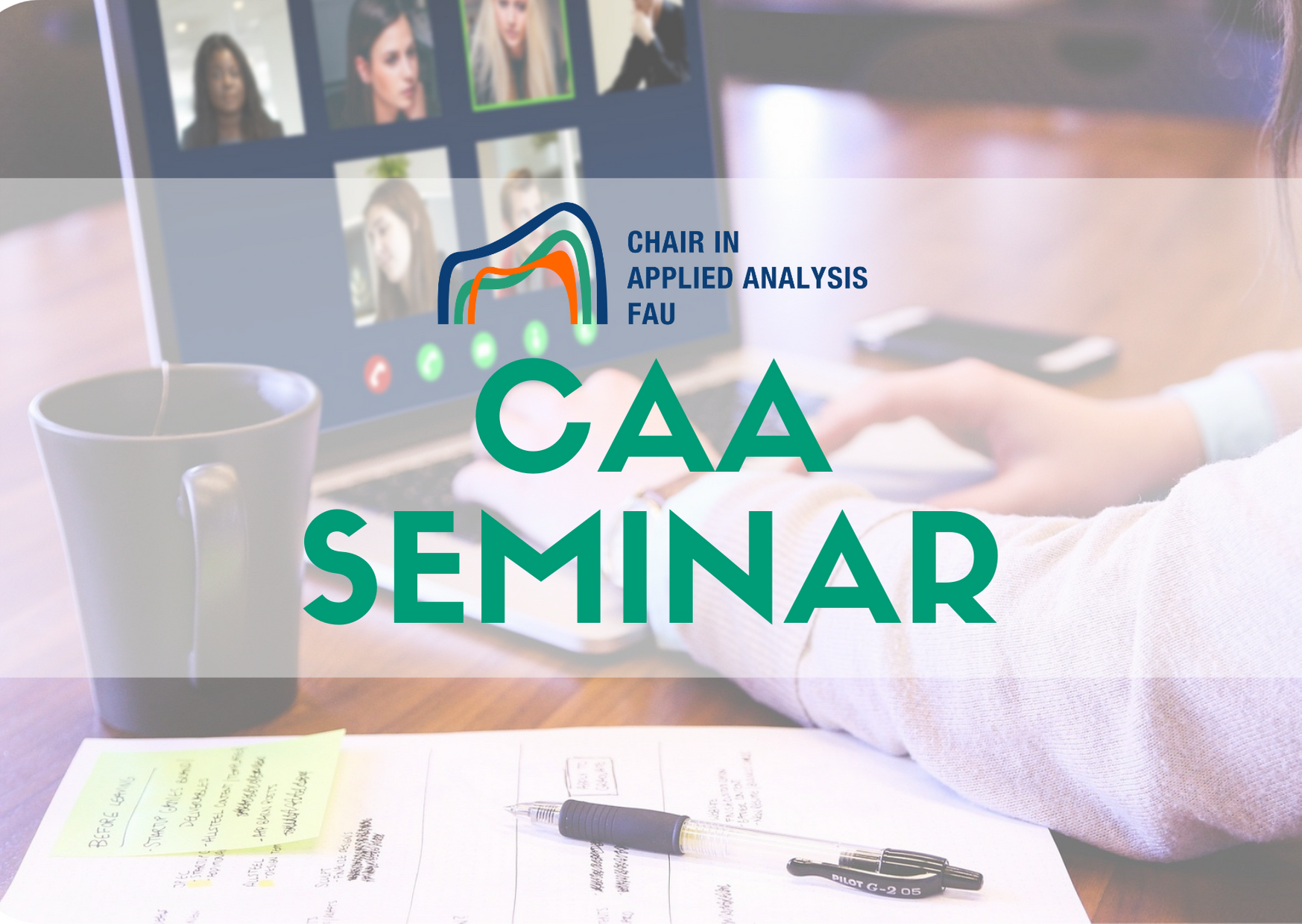
State Estimation – the Role of Reduced Models
Speaker: Prof. Dr. Wolfgang Dahmen
Affiliation: University of South Carolina (USA)
Organized by: FAU DCN-AvH, Chair for Dynamics, Control and Numerics – Alexander von Humboldt Professorship at FAU Erlangen-Nürnberg (Germany)
Zoom link
Meeting ID: 954 4071 3934 | PIN code: 789362
Abstract. The exploration of complex physical or technological processes requires exploiting available information from different sources. So called background information is typically based on physical laws, often represented as a family of parameter dependent Partial Differential Equations where the range of parameters is to capture the states of interest. A second (external) source are data, provided by measurement devices or sensors. The amount of sensors is typically limited and data acquisition may be expensive and in some cases even harmful. A proper fusion of classical (possibly deficient or uncalibrated) models with a limited set of data is therefore at the heart of a wide range on inversion tasks such as data assimilation, and state or parameter estimation. This talk highlights some recent developments for such “Small-Data” scenarios where inversion is strongly aggravated by the typically large parametric dimensionality. A guiding theme is to develop concepts that warrant a high degree of „predictive capabilities“. This requires a rigorous accuracy assessment in relation to the incurred computational cost. In this context a central role is played by nonlinear reduced models whose certifiability hinges on a posteriori accuracy control. This, a proper adaptation of the reduced models to the external information, as well as the identification of intrinsic recovery limitations, are shown to rely on exploiting intrinsic problem metrics already on the infinite-dimensional level. This, in turn, requires employing stable variational formulations of the PDE model. We discuss these concepts for two classes of reduced models, either based on (piecewise) Reduced Bases (RB) or on Deep Neural Networks (DNNs). This indicates, in particular, for which problem type which version is expected to be preferable. If time permits we present a problem class where a superior expressive power of DNNs can be established rigorously so as to avoid the Curse of Dimensionality.
Part of the material is based on joint work with A. Cohen, R. DeVore, J. Nichols, O. Mula, Min Wang, Zhu Wang.
Join this event at LinkedIn
